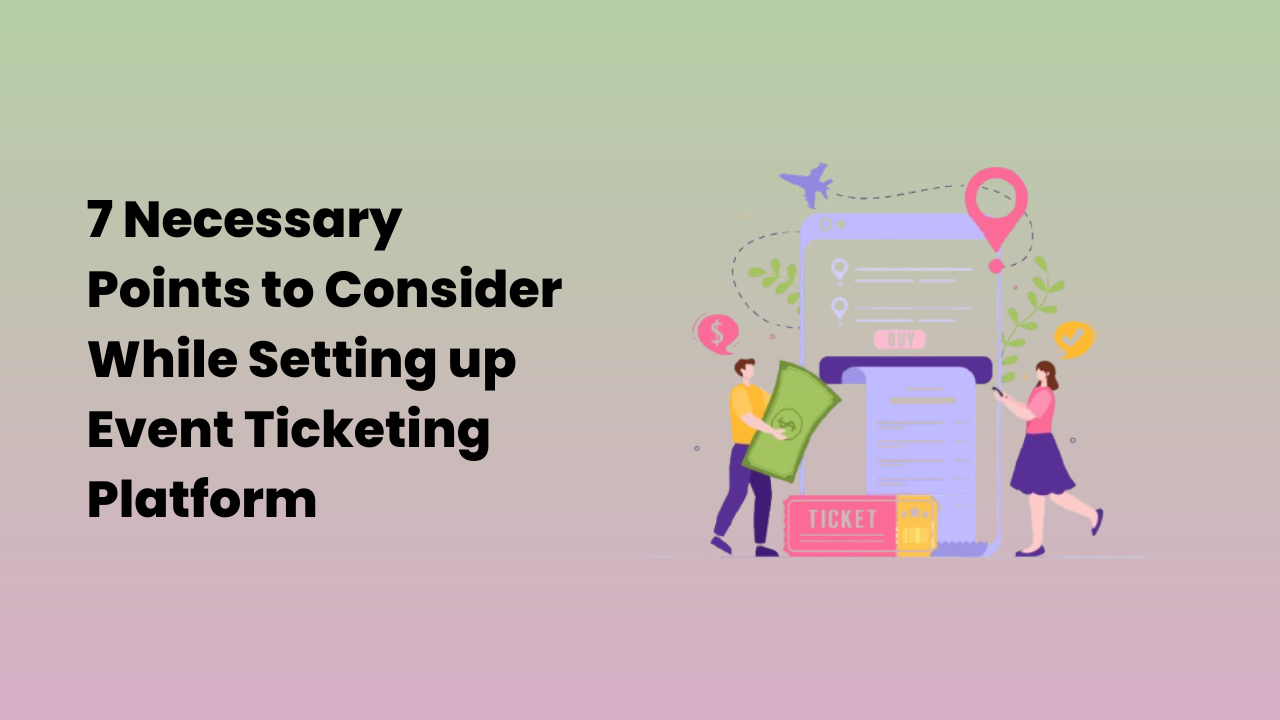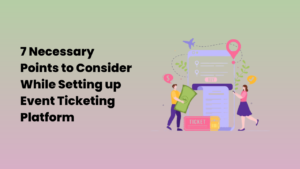7 Necessary Points to Consider While Setting up Event Ticketing Platform
The most prominent aspect of holding any event, be it a conference, festival, or concert, is how to set up a proper event ticketing platform. A well-designed event ticketing platform streamlines the ticket sales process while also making the experience for the attendees meaning-packed from start to finish. Here are seven necessary points to think about in setting up your event ticketing platform to make sure both organizers and attendees enjoy a smooth event.
1. User-Friendly Interface
A very important thing you would want to focus on while getting your event ticketing platform set up, is a user-friendly interface that will make navigation easy, selection of the tickets you want, and a smooth checkout for attendees. A clear layout with simple navigation can dramatically reduce cart abandonment. Ensure that your website is optimized for desktop and mobile users, as many will use a mobile application to buy tickets.
2. Integrated QR Code Ticketing System
The QR code ticketing system is a crucial component of event ticketing in modern times. You can ease the verification process if you use QR codes; every ticket bought should be accompanied by its unique QR code to scan upon entry to quicken up the check-in procedure. One advantage of this system is a minimum physical contact and maximum security that makes entry without glitches easy. Moreover, contactless check-in at the event not only complies with health standards but also makes it more convenient for those attending.
3. Comprehensive Event Check-in Solution
The event check-in solution must therefore be incorporated into the ticketing platform for an event, such as real-time tracking of attendees and scanning through multiple devices, as well as the handling of different types of tickets. A reliable check-in mechanism will therefore ensure that there is efficient management of attendee flow to minimize waiting times and create overall satisfaction with management. The app may even be integrated with a mobile event whereby a phone number may allow attendees to receive notifications and updates on their mobile phones when checking in.
4. Flexible Payment Options
Always allow people to pay in any manner that is convenient for them. Your event ticketing system must, therefore, accept various modes of payment, including credit/debit cards, digital wallets, and even cryptocurrency, if possible. A simple payment process reduces friction and encourages more attendees to finalize their purchases. Consider an onsite badge printing solution that enables attendees to print out their badges immediately after making the purchase, so when they get to the event, things won’t be as hasty.
5. Scalability and Reliability
As an event organizer, it’s vital to choose an event ticketing platform that can scale according to your needs. Be it a small seminar or a giant festival, your ticketing platform should be able to take in varying volumes of traffic without collapsing. Your chosen solution should preferably have a good reliability record and is therefore ready for last-minute ticket sales-which usually peak during these events. This primarily applies to events that are in high demand, and tickets will be sold out in a short period. You want to make sure your event platform can handle all the attendees at their peak as well.
6. Data Analytics and Reporting Features
A well-structured ticketing system for events may include providing users access to data analytics and reporting tools. It can help analyze the behavior of guests, trends in ticket sales, or how effective marketing was in selling more tickets; information from this can be useful for future planning of the event so that one’s offerings are tailored even better to meet the needs of one’s audience. For example, if there’s an overnight increase in ticket sales via mobile devices, then you should invest more in enhancing the quality of your mobile event app experience.
7. Sustainable Customer Support
There is always a scope for any kind of change or any mishappening during an event. Though everything is well managed and systematic, there can be unexpected trouble, so having a robust support team is very important. It will help in efficient communication with the attendees and thereby resolve queries related to the event. An efficient event ticketing platform should be able to deal with crises smoothly. In addition, a good contingency plan will prepare the team so that they respond immediately and effectively. This front-line approach does not only mean that the comfort of an attendee is enhanced but also that it creates confidence and security, therefore being forthcoming for more events.
Conclusion
Considering multiple factors while developing the event ticketing site ensures an interface that is not very hard to use from the integration of a reliable QR code ticketing system. Each point plays a significant role in the attendee experience. Prioritizing event check-in solutions, flexible options for payment, and scalability, data analytics will ultimately stand out as a difference-maker in your event.
Read more: qiuzziz



















































